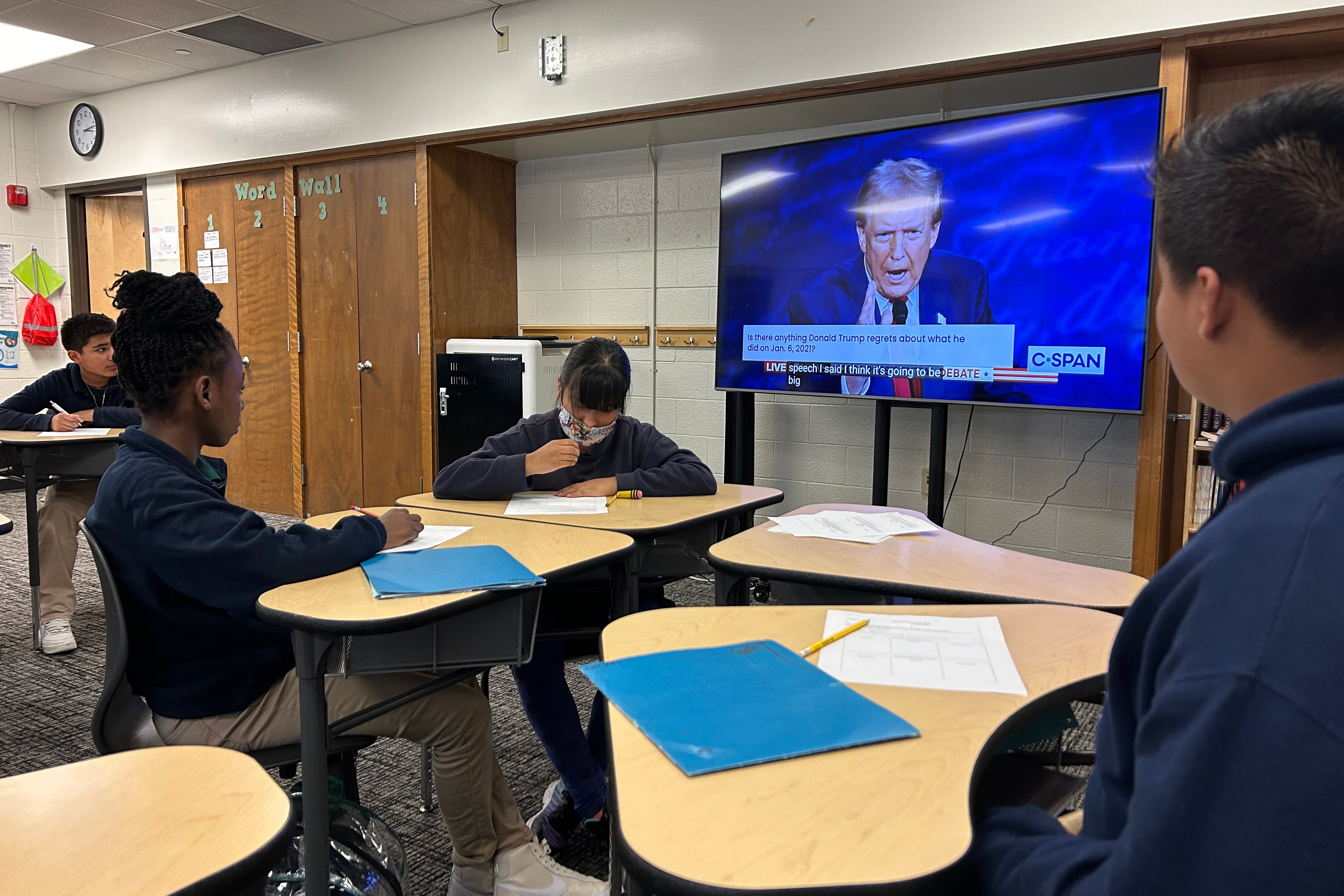Sign up for Chalkbeat Indiana’s free daily newsletter to keep up with Indianapolis Public Schools, Marion County’s township districts, and statewide education news.
An estimated $107 million in federal funds to support after-school programs, academic enrichment, English language learners, and more in Indiana are in limbo following a decision by the Trump administration to withhold the funding as it completes a program review.
States expected to receive more than $7 billion in federal K-12 education funding on July 1, but were told on Monday that the applications were still under review. The pause is part of an ongoing push by the Trump administration to ensure that no federal funds are flowing to programs that support what it describes as illegal diversity, equity, and inclusion initiatives.
On Thursday, Indiana education officials said in a weekly newsletter that additional information “will be shared with schools as we know more about these allocations.” The department reiterated the statement in response to questions from Chalkbeat.
In a statement announcing the pause to states, the U.S. Department of Education said “decisions have not yet been made concerning submissions and awards for this upcoming academic year.”
Funding could have an impact this school year
Indiana has already taken steps to verify that the state’s schools do not engage in diversity, equity and inclusion practices in order to preserve federal funding.
It’s not clear yet how the latest decision by the administration will affect Indiana, where students return to schools as early as July 24.
The allocations for the affected programs in the 2025-26 school year, as approved by Congress in March, were expected to stay the same as in the previous year. Here’s what they totaled in 2024-25:
- $41.2 million for Title II-A, which supports professional development for teachers and administrators;
- $20.7 million for Title IV-A, which supports academic enrichment and can include STEM, music, and arts education, technology access, as well as programs to prevent bullying and abuse;
- $19.9 million for Title IV-B, which is for before- and after-school care programs known as 21st Century Community Learning Centers;
- $12.8 million for adult basic and literacy education;
- $10.1 million for Title III-A, which supports English learner programs; and
- $2.5 million for migrant education
The announcement blindsided out-of-school care providers, which were counting on the funds being released in order to hire staff and prepare for the upcoming school year, said Brent Wake, senior vice president of engagement for the Indiana Afterschool Network.
The 21st Century Community Learning Centers serve 20,000 students in 200 communities in Indiana, Wake said. Many offer free or low-cost care, which includes academic enrichment, homework help, and social emotional learning.
“We’re taking programs that work and removing necessary funding and saying ‘good luck,’” Wake said.
If the funds are not released quickly, some providers may face decisions about cutting staff or hours, or eliminating programs for the upcoming school year, Wake said. Others may need to close their doors.
The Title IV-B grant is the largest source of dedicated funding for before- and after-school programs, Wake said. The centers may be supplemented by private donations, tuition charged to families, or the state’s two childcare assistance programs — the Child Care and Development Fund and On My Way Pre-K. Both state programs currently have waitlists.
Wake said providers had been preparing to advocate to preserve a dedicated funding stream for 21st Century Community Learning Centers in the 2026-27 budget, which sought to consolidate many federal grant programs into block funding for states.
Indiana agreed to strip DEI, racial and ethnic studies to save funding
This is not the first time this year that federal education funding has been at risk over concerns that programs it funds do not align with the new administration’s goals.
In April, the Department of Education told states that in order to receive federal funding, they must certify that their schools do not engage in diversity, equity, and inclusion initiatives. Indiana education officials said they would comply.
During this year’s legislative session, lawmakers also stripped state requirements related to racial and ethnic studies electives, citing a request by the Indiana Department of Education amid concerns that the state could risk losing its federal funding.
The state previously required high schools to offer one semester of a racial or ethnic studies class each school year, but did not require students to take it.
Republican lawmakers said during the session that $1 billion in federal funding was at risk if lawmakers did not remove the course requirement. Democrats pushed back on the change.
Aleksandra Appleton covers Indiana education policy and writes about K-12 schools across the state. Contact her at aappleton@chalkbeat.org.







